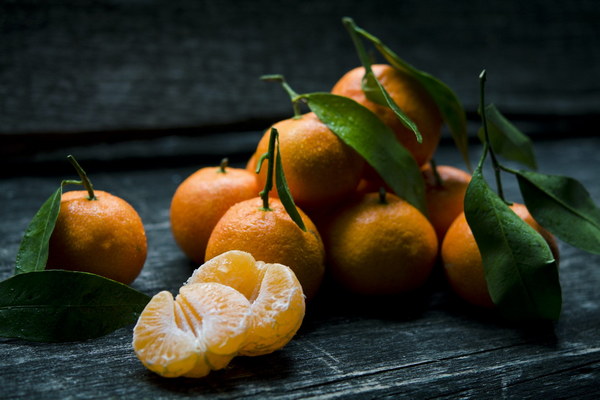Harvesting Health A Guide to Lung and Liver Care During the Autumn and Winter Seasons
As the seasons transition from the warmth of summer to the cooler temperatures of autumn and winter, it's a pivotal time to focus on nurturing our internal organs, particularly the lungs and liver. These organs play a crucial role in our overall health, and their proper care during the changing weather can help us maintain vitality and resilience. Here's a comprehensive guide to lung and liver care during the autumn and winter months.
Understanding the Autumn and Winter Impact

Autumn and winter are seasons characterized by dryness and coldness, which can exacerbate certain health issues. The lungs are particularly susceptible to dryness, leading to respiratory problems such as coughs, colds, and asthma. The liver, on the other hand, can become overburdened with the toxins released by the body in response to the cold weather, potentially leading to fatigue, irritability, and other discomforts.
Nourishing the Lungs
1. Hydration: Drink plenty of warm fluids throughout the day to keep your lungs moist. Green tea, warm water with lemon, and ginger tea are excellent choices.
2. Breathing Exercises: Practice deep breathing exercises to improve lung capacity and oxygenation. Pranayama, a traditional breathing technique, can be particularly beneficial.
3. Aromatherapy: Use essential oils like eucalyptus, peppermint, and rosemary to open up the respiratory passages and alleviate congestion.
4. Avoid Exposure: Limit exposure to cold and dry air, especially when outdoor temperatures drop. Wear a scarf to protect your lungs from cold drafts.
5. Herbal Remedies: Consider herbal supplements like turmeric, ginger, and licorice root, which have natural anti-inflammatory properties.
6. Nutritional Support: Incorporate foods rich in vitamin C, vitamin E, and beta-carotene, such as oranges, bell peppers, and carrots, to support lung health.
Supporting the Liver
1. Detoxification: The liver needs to work harder during the cold season, so it's important to support its detoxifying function. Drink plenty of water and consume foods that aid in detoxification, such as leafy greens and cruciferous vegetables.
2. Healthy Fats: Include healthy fats in your diet, such as those found in avocados, nuts, and seeds, which are essential for liver health.
3. Moderation: Avoid excessive alcohol and processed foods, which can burden the liver.
4. Herbal Teas: Drink herbal teas like dandelion, milk thistle, and burdock root to support liver function.
5. Stress Management: High stress levels can affect liver health. Practice stress-reducing techniques such as meditation, yoga, or gentle exercise.
Lifestyle Adjustments
1. Layered Clothing: Wear multiple layers to keep your body warm and protect your lungs and liver from the cold.
2. Regular Exercise: Engage in moderate exercise, such as walking or cycling, to improve circulation and support overall organ health.
3. Adequate Sleep: Ensure you get enough restful sleep, as it's essential for organ rejuvenation and repair.
4. Seasonal Affective Disorder (SAD): If you're prone to SAD, consider light therapy or other treatments to alleviate symptoms.
By following these guidelines, you can help ensure that your lungs and liver remain strong and healthy during the autumn and winter seasons. Remember, the key is to balance the body's needs with the environmental changes, and to adopt a holistic approach to wellness.









